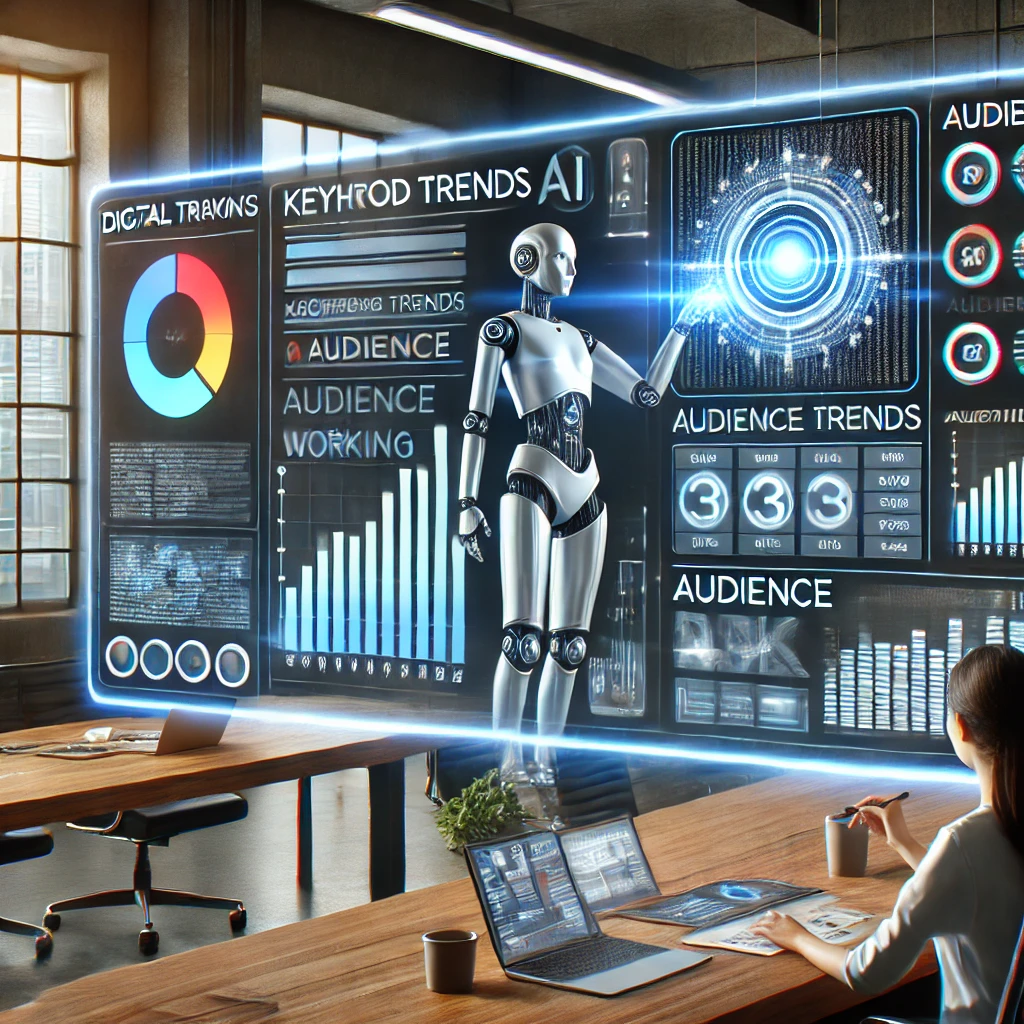The Transformative Impact of AI on Modern Content Strategy
In the dynamic world of digital marketing, content strategy serves as the linchpin connecting brands with their target audience. As technology advances, traditional methods of crafting these strategies have evolved, with artificial intelligence (AI) emerging as a transformative force. By 2025, AI has not only reshaped content strategy development but has also become an essential tool for marketers seeking to maintain a competitive edge. This innovation offers unprecedented capabilities, from audience analysis and trend prediction to content creation and performance optimization.
Data-Driven Decision Making for Modern Marketing Professionals
Digital marketing professionals, especially those specializing in SEO, can no longer rely solely on intuition or past performance metrics. AI empowers marketers to harness real-time data, automate repetitive tasks, and predict content trends, enabling the creation of campaigns that resonate deeply with audiences. AI-driven tools like Google Analytics 4 and Semrush have revolutionized how marketers approach content planning and optimization, fostering agility and precision in the ever-changing digital landscape.
Practical Applications for Enhanced Marketing Results
This article delves into the practical applications of AI in developing effective content strategies. With real-world examples and actionable insights, we’ll explore how digital marketing professionals can leverage AI to achieve better results while optimizing time and resources.
Revolutionizing SEO Through Artificial Intelligence
AI’s role in SEO and content strategy extends beyond automation—it’s about making smarter decisions. AI tools analyze vast amounts of data, providing insights that were previously unattainable. For instance:
Advanced Performance Prediction and User Experience Enhancement
Content Performance Forecasting: Tools like Clearscope predict which topics and keywords are most likely to succeed, based on current search trends (HubSpot, 2024).
Enhanced User Experience (UX): AI-driven personalization engines, such as Optimizely, tailor web pages and content to individual users, boosting engagement metrics (Forbes, 2023).
Proven Success in Real-World Implementation
Recent Example: In 2024, a travel blog utilized Jasper AI to identify high-performing keywords around sustainable tourism. The insights led to a series of well-optimized articles, increasing organic traffic by 35% within three months (Statista, 2024).
Balancing Innovation with Authenticity in Content Creation
Additionally, current developments emphasize the ethical use of AI in content creation. Guidelines from the Content Marketing Institute stress the importance of maintaining human oversight in AI-driven strategies, ensuring content remains authentic and aligns with brand values.
Strategic Tools for Targeted Marketing Campaigns
Audience Segmentation: AI tools like Salesforce Marketing Cloud analyze demographic and behavioral data to segment audiences effectively. This allows for targeted campaigns that resonate with specific groups.
Leveraging Data Insights for Content Development
Content Ideation: Platforms like BuzzSumo identify trending topics and content gaps by analyzing online conversations and search data. These insights help marketers develop content strategies that align with audience interests (Content Marketing Institute, 2024).
Continuous Improvement Through Real-Time Analytics
Performance Optimization: AI analytics platforms such as HubSpot provide real-time data on engagement, conversion rates, and ROI. This enables marketers to refine strategies dynamically, ensuring maximum impact.
Demonstrated ROI Through Strategic Content Optimization
Case Study: A healthcare brand employed AI-driven analytics to monitor the performance of its wellness blog. By identifying underperforming articles and optimizing them, the company achieved a 15% increase in average time spent on the site (Forbes, 2023).
Navigating the Ethical Landscape of AI in Marketing
As AI adoption grows, ethical concerns surrounding transparency, data privacy, and bias must be addressed. Reports highlight that AI-driven content strategies must balance efficiency with accountability to maintain audience trust (Statista, 2024). Moreover, advancements in AI, such as Natural Language Processing (NLP), are expected to further revolutionize content personalization by 2026.
Embracing AI as an Essential Component of Modern Marketing
The integration of AI into content strategy development is no longer optional but essential for success in a competitive market. By employing AI for audience segmentation, content ideation, and performance optimization, digital marketers can craft strategies that are data-driven, scalable, and results-oriented. As we move further into 2025, staying informed about AI advancements and their implications on SEO will be crucial for sustainable growth.
Industry Sources and Further Reading
References
HubSpot. “The Role of AI in Content Strategy Development.” Published 2024.
Statista. “AI Tools for Content Marketing: Trends and Projections.” Published 2024.
Forbes. “Maximizing Content ROI with AI-Driven Strategies.” Published 2023.
Content Marketing Institute. “Ethical Guidelines for AI in Marketing.” Published 2024.
